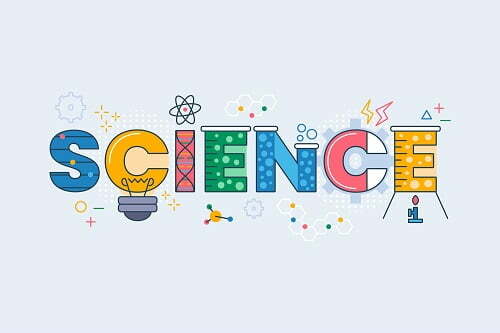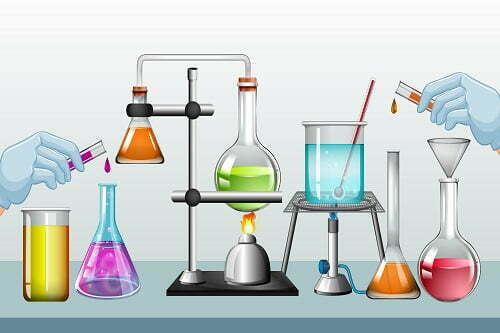Table of Contents
- Here’s everything you need to know about science questions for the board exam
- Guides and reference books for students
- Tips to improve your science subject preparation
- How to take care of periodic table, numerical, and equations?
- Some tips for chemistry
- Some additional guidelines for preparing science questions
- Key takeaways
- FAQs
Here’s everything you need to know about science questions for the board exam
For all class X students who will take their first board exams, this is a crucial time to prepare. Board exams, however, are not any different from the exams students have been taking in prior semesters. It is the foundation where students gain the basic knowledge for hard science questions. Science can be used and observed daily one of the most crucial subjects for further education.
For any entrance exams, science is mandatory. It offers interesting science questions which evaluate students on the basic knowledge of science by conducting examinations inclusive of hard science questions with answers. The board exams are the first competitive exams that define and direct the future course of tenth-grade students. Their performance on board exams also indicates a student’s level of sincerity and responsibility.
Guides and reference books for students
For these exams, all students must devote themselves fully to preparation if they want to do well and receive a high grade. You should know the best books for Board Exam preparation and a solid preparation method. The NCERT Textbooks are the go-to resource for studying for the CBSE Class 10 Board Exams.
After you have gone through NCERTs, you can refer to more books to help you practice properly and obtain greater clarity on the topics.
Tips to improve your science subject preparation

It’s no secret that preparing for the CBSE 10th Science exam can be more challenging than other subjects. It can be overwhelming to go through all the courses during exams.
So here’s a curated guide for our students to look through so that they don’t stress out!
- The first tip to acing your exams is completing your syllabus and practicing with as many question papers as possible. This way, you will better understand the material and be able to answer questions on any chapter, not just the ones at the back of your textbook.
- Make a formula list for each physics chapter. There are a lot of formulas for concepts such as electricity, work and energy, and other chapters, so it’s good to have a list to reference. This will save you time in the long run and help you keep track of everything.
- Working on your visualization skills is key in learning new chapter material. In addition to simply looking at the diagrams in your textbook, take the time to draw them out yourself. This extra step will help solidify the information in your mind and prepare you for any questions that might arise during class or exams.
How to take care of periodic table, numerical, and equations?
- A very common mistake people make is forgetting to write units and measurements, thus losing marks. Make sure you take the time to include units in your writing.
- It can be helpful to visualize the sums when solving them. Always draw rough diagrams to visualize easy science questions. For example, in the electricity sums, you must draw the circuit diagram and mark all the important things. In the light sums on mirrors or lenses, be sure to draw the diagram and mark the axis for the sign convention because it’s very important to decide the sign based on the diagram.
- You need to know your stuff regarding symbols, valencies, and atomicity if you want to do well in your chemistry exams. If you don’t learn this stuff, your formulas and equations will be wrong, and you could easily lose 20, 30, or more marks as it is considered an important science question in 10.
- It is important to balance your chemical equations. The best practice is to write them down, check your formulas, and always practice balancing the equation.
Some tips for chemistry

- It is important to learn colors and observations for the Chemistry exam. You will often have to predict what chemical substance is being given in the question or the observation. To do this, you need to know a few important details.
- For example, Copper sulfate is made of blue-colored crystals. Barium sulfate has a white residue. Sulfur dioxide has a pungent smell, etc.
- It’s important to learn the periodic table and reactivity series when studying chemistry. The periodic table will help you identify elements and understand their properties, while the reactivity series will help you predict displacement reactions and reactions between different metals.
- As you’re reading your textbook, it’s important to sit with a pencil and highlighter to mark general science questions in English that stand out to you or that you keep forgetting. For example, if there’s a difficult physics or chemical formula that you can’t seem to remember, make sure to mark it down. This way, you can quickly revise all important information on the last day before your exam.
Some additional guidelines for preparing science questions
At times plans without any error lead to more errors as precise and detailed planning often becomes riskier due to being completely flawless. But with a little planning, you can succeed with flying colors! Here are additional guidelines to help you get disciplined before your journey to success:
- Spend some time each day reviewing the material you covered in class. This will help solidify the concepts in your mind and make it easier to recall them during test time.
- Make use of study aids such as flashcards and practice quizzes. These can help identify areas where you need more learning and understanding.
- Talk to your teacher! They must always be the first source of any guidance on what topics you must put more concentration comparatively during the time of exam, and may teachers frequently aid with some additional resources and notes which might be easier to grasp.
Key takeaways
After students finish their board exams, they face the stress of choosing their careers. The right help can ease this process. So visit iSchoolConnect and get the most reliable information and support, so you can successfully pave a path for a bright future.
Was this blog informative? If so, please share your thoughts in the comments below. Click here to reach out to us for more information on different science questions. We would be happy to assist you with your queries!
Liked this blog? Read: Best science books | Here are the books to satisfy your scientific quest
FAQs
Q1. Which among the syllabus is the hardest chapter in science?
Answer – Out of all the chapters in Class 10th Science, Heredity and Evolution is often considered the most difficult. It’s also one of the most important topics, so it’s worth putting in the extra effort to understand it fully.
Q2. How much time should be dedicated to studying for the Toppers exam?
Answer – The experts agree that a minimum of 6 to 8 hours should be spent daily if the goal is to ace the test.
Q3. When should I study to have the best results?
Answer – There is no definitive answer to the question of when is the best time to study. However, research has shown that studying in the evening can help improve your recall and memory consolidation. So if you’re looking to get the most out of your studying, consider doing it at night before you go to bed.






